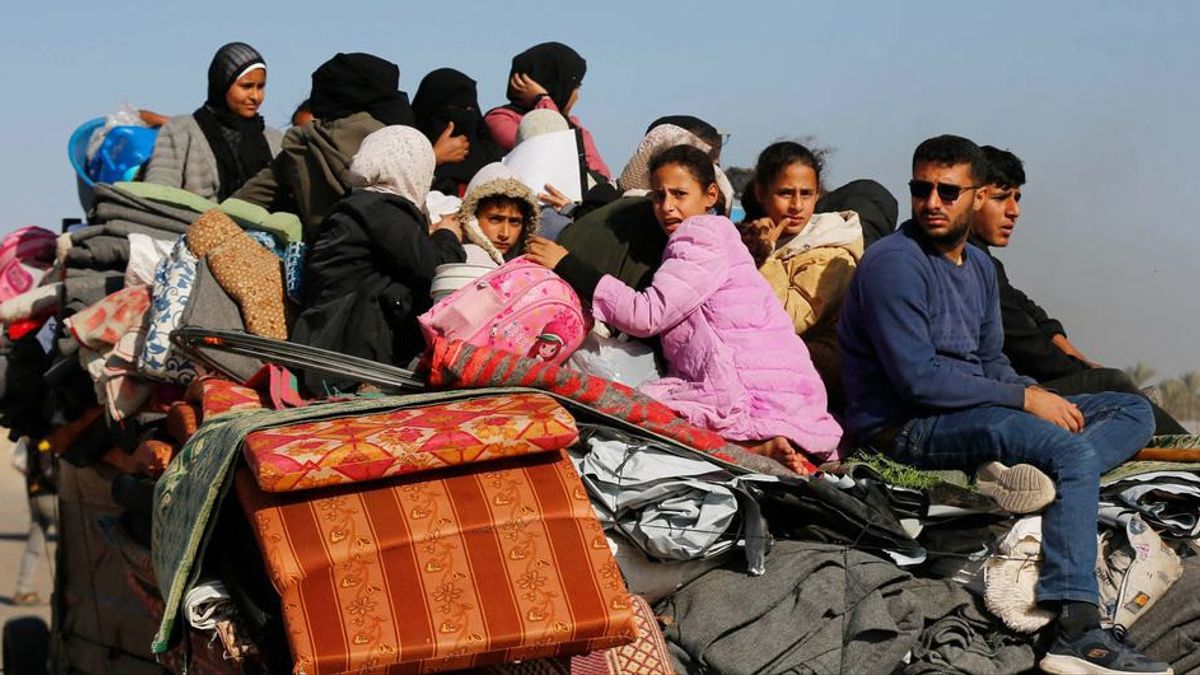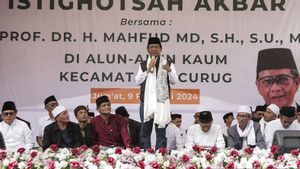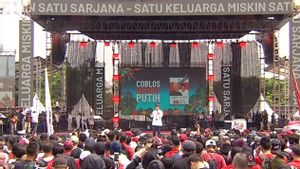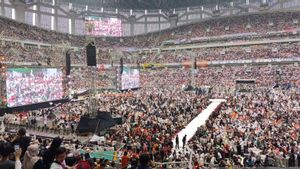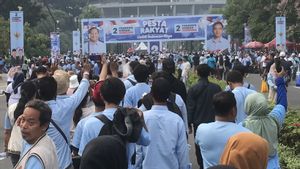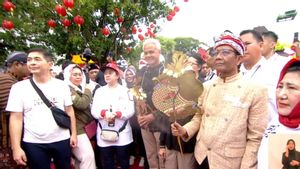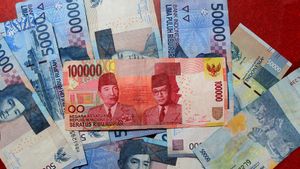JAKARTA - UN spokesman Stephane Dujarric expressed concern over the plan to evacuate civilians from Rafah, Gaza, by the Israeli prime minister.
"We are very worried about the fate of civilians in Rafah City," Dujarric said as quoted by ANTARA, Saturday, February 10.
The statement came after Israeli Prime Minister Benjamin Netanyahu ordered the Israeli Defense Forces (IDF) to develop a dual plan to evacuate civilians from Rafah and to defeat the remaining Hamas battalion.
"What is certain is that the community must be protected, but we also don't want to see forced evacuations, forced mass evacuations, which by definition goes against their wishes," Dujarric said.
He also stressed that the United Nations would not support forced evacuation in any way, which is against international law.
The unprecedented density of Rafah residents makes efforts to protect civilians in the event of a land attack almost impossible, he said.
According to the United Nations Office for Humanitarian Affairs Coordination (OCHA), Dujarric continued, the stagnant situation in Rafah has reached a point where usual routes are blocked by tents set up by families looking for flat and clean places.
In the past three months, the city (Rafah) has produced garbage equivalent to the amount of waste for a year, according to the city government.
SEE ALSO:
The OCHA said the food, clean water crisis, health services and sanitation facilities resulted in disease and deaths that should have been preventable, Dujarric said.
Despite a temporary decision from the International Court, Israel continues to attack the Gaza Strip, where at least 27,947 Palestinians, mostly women and children, have been killed and 67,459 others injured since October 7, according to Palestinian health authorities.
Israel has launched attacks on the Gaza Strip since the Palestinian Hamas group carried out cross-border attacks that Tel Aviv says have killed nearly 1,200 people.
The United Nations said Israeli aggression had caused 85 percent of Gaza's population to flee amid the food, clean water and medicine crisis, with 60 percent of infrastructure in the enclave damaged or destroyed.
The English, Chinese, Japanese, Arabic, and French versions are automatically generated by the AI. So there may still be inaccuracies in translating, please always see Indonesian as our main language. (system supported by DigitalSiber.id)
